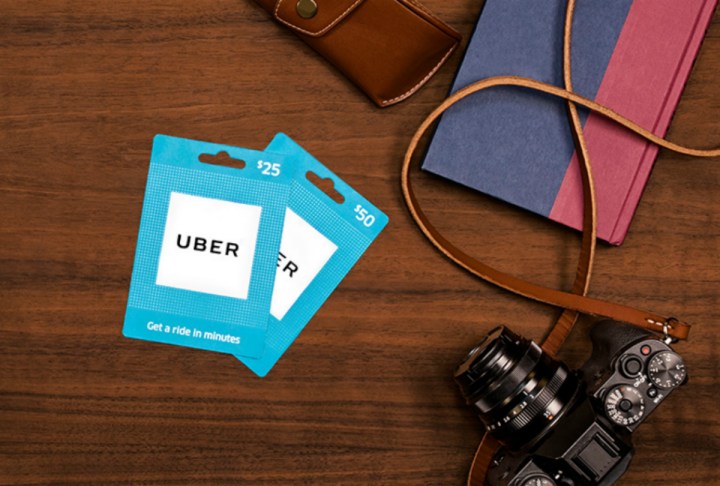
Information about Uber gift cards is available at a dedicated website, but you won’t be able to purchase them online at first. Within a few weeks, 35,000 Walmart, Target, and CVS retail locations in the U.S. should have Uber gift cards in stock and for sale. Coming sometime “soon” you’ll be able to purchase them online at this site.
In addition to being usable in all U.S. cities, the Uber gift cards will not have expiration dates and there will be no added fees. Card values will start at $15. According to the Uber blog, there will be cards for $25 and $50 face values as well as a variable value card that can be loaded with $15 to $500 worth of Uber rides at the time of purchase. Uber gift cards can not be reloaded.
To use an Uber gift card, according to the company, all you’ll do is enter the gift card code in the Uber app in after tapping Add Promo/Gift Code when you request a ride. Balances left after an Uber ride will be rolled over for future rides.
According to Uber, while the new Uber gift cards will be available and redeemable only in the U.S., users should check back on the blog for future possible expansion to other countries. A business program for companies to offer Uber gift cards to employees to help with commuting costs or to show appreciation will be “coming soon.”
The convenience of gift cards for riders, plus the revenue-before-service and the associated potential investment float until cards are redeemed sounds like a win for both Uber and its riders. It should be noted that lost or stolen cards won’t be replaced.
In Uber’s big push to take even greater command of the U.S. rideshare market, gift cards could tip the balance in favor of riders choosing Uber if Lyft and other companies don’t issue cards of their own.
Uber suggests, too, that in addition to buying gift cards for family, friends, and employees, “you might just end up keeping one for yourself.”
Download for iOS Download for Android
Editors' Recommendations
- Uber offers new feature for environmentally conscious riders
- Nvidia’s new RTX 3070 Ti graphics card hit stores today and sold out in minutes
- Uber may be banned in London. Could the same thing happen in the U.S.?
- The best cars for Uber
- Uber is now arguing that it doesn’t actually have any drivers




